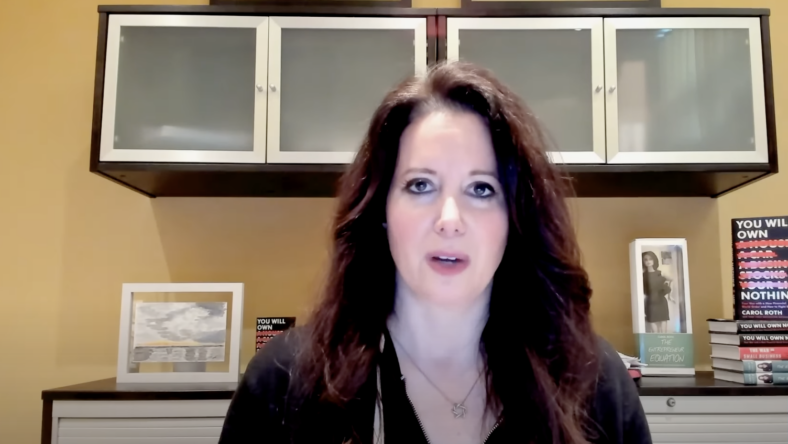
Will you truly “own nothing” and be happy?
Carol Roth, a seasoned investment banker and bestselling author, has shared some thought-provoking insights from her new book titled “You Will Own Nothing: Your War with a New Financial World Order and How to Fight Back” in a recent article from NextBigIdea.com.
Here’s a breakdown of her thoughts, tailored for our readers who might not be completely aware of the machinations of the political and corporate elite and how they want to impact our lives.

The End of Private Ownership?
Roth references a video from the World Economic Forum, which suggests that by 2030, people might own nothing yet be content. She points out the potential dangers in this, emphasizing how wealth generation has historically been tied to ownership. According to Roth, if we’re not owning assets, our potential for wealth creation could be stunted. Moreover, she is alarmed that the message targets ‘you’ and not ‘we,’ hinting that the elite may be excluding themselves from this prediction.
A Shift In Financial Power
There’s a belief that global financial power shifts every so often. Roth brings up how the U.S., once a financial epicenter, is seeing signs of being replaced, citing examples like U.S. debt and the decreasing influence of the U.S. dollar. This change isn’t new; as Carol mentions, before the U.S. was dominant, Britain and the Netherlands had their turn.
The “Rented” American Dream
Remember the dream of owning a home? Roth suggests Wall Street now competes with regular folks in buying homes, only to rent them back, which may rob many of a primary source of wealth accumulation. In her words, around “one in every five homes sold in the U.S. was sold to a corporate investor.”
Wealth Tax: A Threat to Middle-Class Wealth?
Further into the conversation, she discusses the possibility of a wealth tax which, while targeted at billionaires, may inadvertently impact the middle class. She uses the example of a house bought decades ago that has significantly appreciated in value. A tax on its “unrealized gains” could force owners to sell assets they wouldn’t want to.
Carol’s Advice on Fighting Back
She urges readers to pay attention to what the wealthy are doing instead of simply being bystanders. She notes the trend of them buying real estate and valuable assets. To safeguard against unpredictable shifts, she advises diversifying assets and planning for worst-case scenarios. This includes visiting an estate planning attorney and considering how to maintain access to funds in times of financial upheaval.
What Does This Mean For You?
Carol Roth’s book and the warnings within bring up concerns which, at their core, revolve around the decreasing power and stability of middle-class financial security. Her emphasis on ownership and its relation to wealth serves as a crucial reminder to our readers. As middle-class consumers, understanding the value of ownership and being wary of the broader financial shifts can help in making informed decisions.
However, it’s essential to remember that while Roth’s concerns come from a place of expertise, the future is uncertain. Shifting financial powers and market dynamics have always been a part of global economics.
In conclusion, Carol Roth’s insights serve as a reminder to stay informed, think critically about ownership and wealth, and remain proactive in planning for the future. As always, diversifying investments, seeking expert advice, and continuing financial education are keys to navigating these potential challenges.
NEXT: The Million-Dollar Dream: Common Paths to a Seven-Figure Net Worth
Disclosure: The information provided by The Financial Genie is for informational purposes only. It should not be considered legal or financial advice. You should consult with an attorney or other professional to determine what may be best for your individual needs. The Financial Genie does not make any guarantee or other promise as to any results that may be obtained from using our content. No one should make any investment decision without first consulting his or her own financial advisor and conducting his or her own research and due diligence. Additionally, some of the organizations with products on our site may pay us a referral fee or affiliate commission when you click to apply for those products.